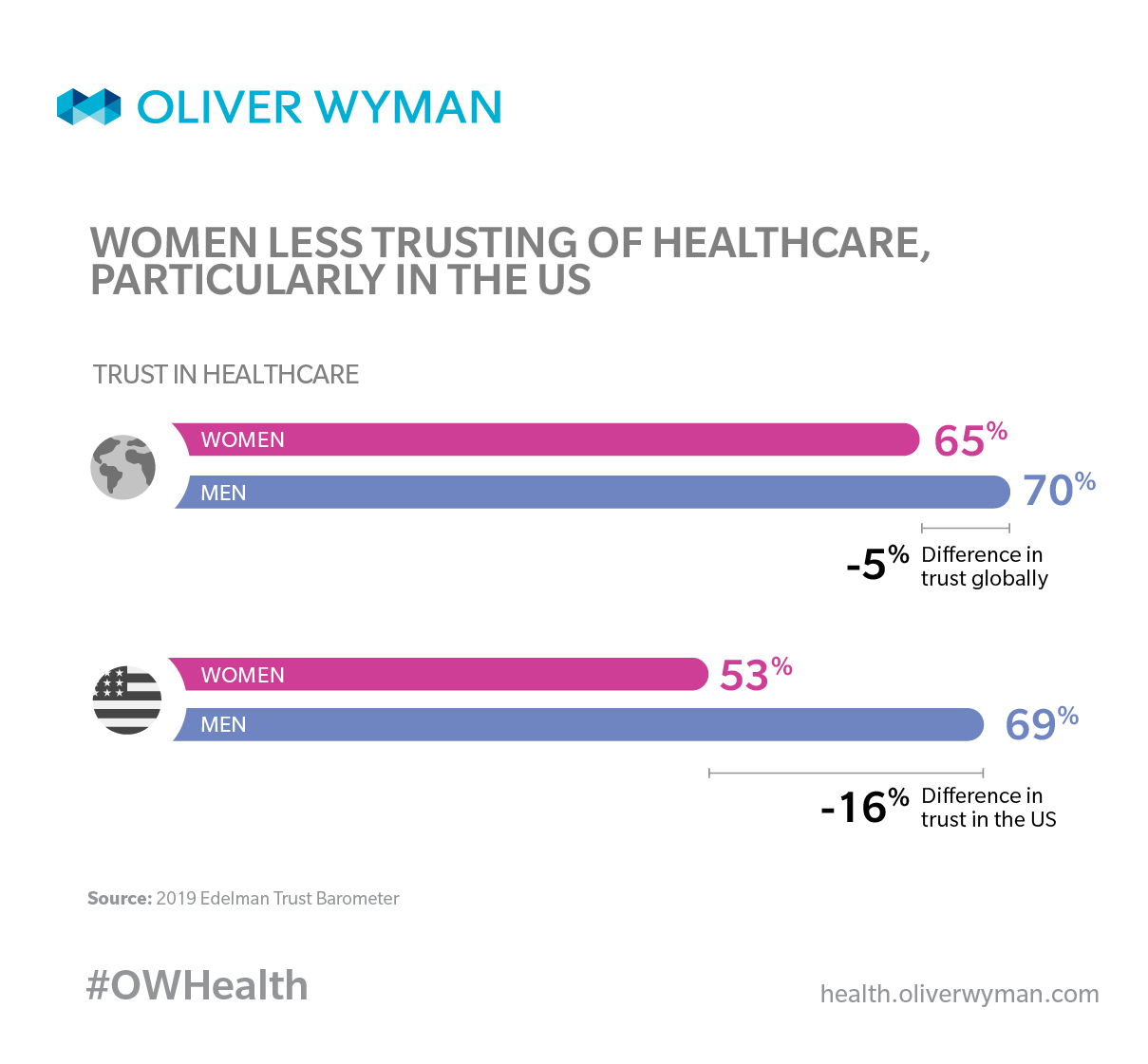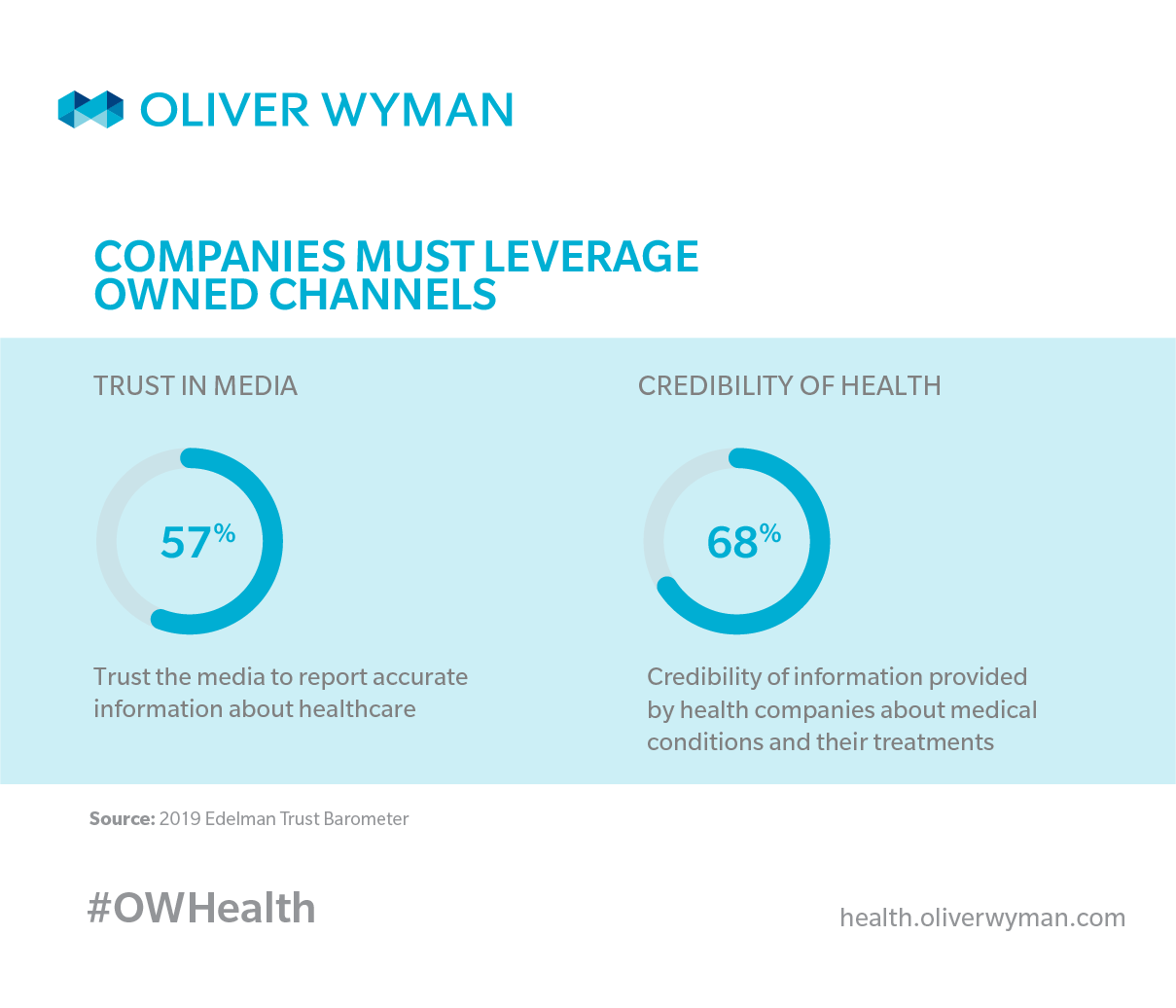Editor's Note: This article was originally published on Edelman.com.
This year’s Edelman Trust Barometer: Healthcare report shows an alarming and widening gap in trust between and among key stakeholders, despite an overall increase in trust in the industry globally.
Notably, there is a concerning gap in trust in healthcare between men and women. On a global scale, women trust healthcare less than men, a divide that has continued to expand over the last few years. Women do not trust healthcare in 12 out of the 26 markets studied, and in priority markets for health companies, such as the U.S. and Germany, the local trust gaps between women and men are more than twice that of the global average.
Why might women trust healthcare less than men do? Globally, women are less trusting of business overall than men, which may be due to the social momentum around the #MeToo movement, increased visibility of pay inequality, and with it, the feeling that the glass ceiling is cracked but still unbroken, among other key issues. Healthcare, as a sector of business, may be feeling these effects.
This trust gap has implications for all healthcare organizations, given that women often play the role of “Chief Medical Officer” for their families. Women are often regarded as the ones who take care of both older and younger family members, in turn managing multiple touchpoints within the healthcare sector. They are a critical audience for all health companies seeking to restore trust.
This year’s study also revealed the largest global gap ever measured in trust in healthcare between the informed public and mass population. This inequality of trust underscores the instability of trust. It also may be reflective of the mass population continuing to feel left behind as compared to others, even as they recognize the advances that are being made that could benefit them. Given tone and tenor of the day, and particularly among mass population, healthcare may continue to see increasing demands for change and regulation.
Finally, healthcare is missing an important trust advantage with those employed in the sector. Globally, Edelman Trust Barometer data shows employees have higher levels of trust in their specific sector of employment, but healthcare lacks this employee trust advantage. Trust levels in healthcare are nearly the same across both healthcare employees and the general population. Where is healthcare falling behind? In a comparison of healthcare employees’ expectations of their employers with their perceived performance of their employers in several areas, the study shows the sector lags behind in employee empowerment and CEO leadership on key issues of the day.
Employees are ground zero for building trust in healthcare. Global Trust Barometer data shows that when employees trust their employers, they are far more likely to advocate on their behalf, stay loyal, be engaged and live the organization’s mission. Healthcare companies should look to rebuild trust by doubling down on employee communications and fostering engagements that are driven by employees themselves.
In addition, beyond their commitment to patients, health organizations must show how they are purpose-driven. Employees want to know what their employers are doing to make the world a better place — and how their job directly contributes to this societal impact.
How else might healthcare companies bridge the gaps seen across these core audiences? A multi-channel communications plan is essential for better reaching and connecting with both internal and external stakeholders. Promisingly, the global Edelman Trust Barometer found that media engagement rose this year among the general population, as did trust in both traditional media and search engines.
While traditional media is an important part of the communications model, it does not fulfill the need for companies to also tell their own stories. Reinforcing this is the eight-point increase in trust in owned media this year, one of the largest increases we have seen across the types of media studied. The study also shows that a healthcare company’s content about medical conditions and their treatments is seen as credible by the general population, an increase of four points since the 2018 Edelman Trust Barometer. This is a clear opportunity for health companies to leverage their owned media channels to reach consumers.
Taken all together, this year’s data shows that trust in healthcare is fragile despite modest global gains. Healthcare companies must take sustained, proactive action or run the risk of further eroding trust, particularly with critical stakeholders: employees, women and the mass population.



